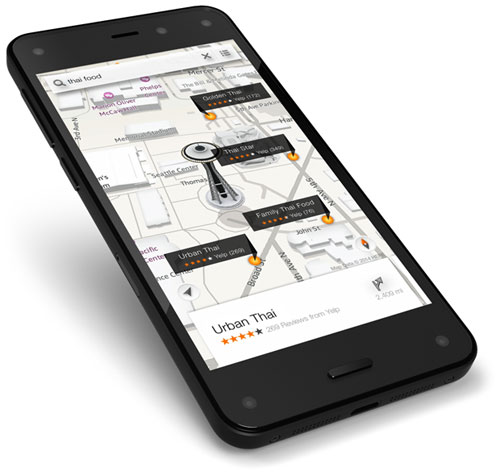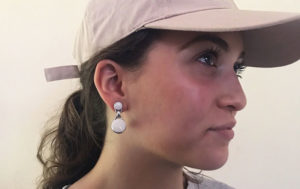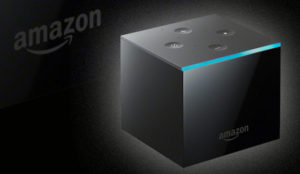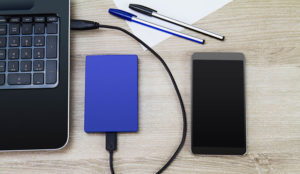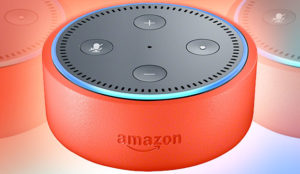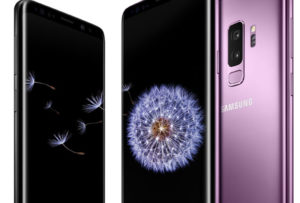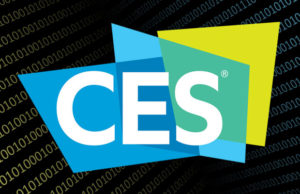Early reviews for Amazon’s first foray into the smartphone market are mixed, with a general sense that the device is a good phone overlaid with some flashy features.
Amazon announced the Fire Phone last month, trumpeting its 3D display, which uses facial recognition and front-facing cameras to shift perspective, depending on where the user’s head is; a personal assistant called “Firefly”; and Amazon’s live, interactive support service, Mayday.
The perspective trick failed to find a fan in The New York Times’ Farhad Manjoo, who noted that while technically impressive, it fails to significantly improve the way one uses a smartphone.
Similarly, Yahoo’s David Pogue praised the aesthetics of the function but said it “isn’t an especially big step forward in efficiency or usefulness.”
Mayday Needs Help?
The Mayday feature may not be quite up to scratch yet either.
All four times he pressed the Mayday button, Pogue said, the friendly support agents gave incorrect answers to his queries. Yet both he and Manjoo praised the efficiency of the service, with the latter noting that a support agent appeared on his screen within 10 seconds every time he tried it.
The battery life gave further cause for concern. On all five days of testing, the phone failed to last the entire day on a single charge for The Wall Street Journal’s Geoffrey A. Fowler.
Fowler is no fan of the app ecosystem, either. While the Fire Phone is an Android device, Amazon blocks certain Google Play apps, particularly Google’s own suite of applications, such as Maps and YouTube.
In terms of design, reviewers found the Fire Phone a straightforwardly built unit, with few distinctive physical flourishes.
The only aspects that stood out were the very visible five cameras on the front panel and the Amazon branding on the rear, wrote David Pierce of The Verge.
E-Commerce Focus
Part of Amazon’s ethos is to sell products like the Kindle e-readers and Fire tablets in the hope consumers will use them to purchase other goods from Amazon (e-books in the Kindle’s case, for instance).
The Fire Phone is guided by this philosophy too, especially with Firefly, which can recognize real-word objects through the phone’s camera and find the items for sale on Amazon’s store. However, the technology is not quite where it needs to be, said ZDNet’s Larry Dignan.
“Firefly is basically Shazam for everything. Firefly’s performance was decent, but there were multiple times where it didn’t recognize the product,” he wrote.

“The Fire Phone’s most powerful features are used only in service of The Internet Shopping Network, not in making a great smartphone,” The Verge’s Pierce opined.
Gesture Positives
In terms of usability, Yahoo’s Pogue, for one, admired the gesture controls, and NYT’s Manjoo felt the Fire Phone was uncommonly friendly and easy to use. However, Pierce found the interface complex and confusing.
Despite the caveats, many reviewers considered the Amazon Fire Phone a worthwhile device. ZDNet’s Dignan said he wouldn’t hesitate to buy it. Pogue suggested it would be a good device for a first-time smartphone owner, though experienced users might want to wait for future iterations. Manjoo said Amazon had created a nice, solid smartphone, if one were to set aside all the bells and whistles.
“Like the other platforms, it is designed as a front end to the company’s back-end services, and Amazon’s services are competitive,” said Rob Enderle, principal of the Enderle Group.
“In addition, it clearly has a shopping focus. That and Mayday are likely the phone’s most differentiating features,” he told TechNewsWorld.
“This first phone hits Amazon users where they live. The next generation needs to focus more on Apple or Android users. They need an automated assistant like Siri, and they need a stronger connection to the coming wearable wave. But for now the phone is where it needs to be, focused on the Amazon user and avoiding the mistake that BlackBerry made,” Enderle pointed out.
“I think the first batch of reviews are quite fair,” said Wayne Lam, senior telecom electronics analyst at IHS.
“The consensus is that this is a good first attempt, but in many ways it is very different from what we are used to, even from an Android perspective. It’s a novel approach, and most of the general public would be reading this and thinking, ‘well, maybe I’ll just hold off for the second version of the device,'” he told TechNewsWorld.
“It’s a great device for folks that are heavy Amazon users — the phone comes with a year of Amazon Prime service included,” Lam noted. “They may feel like they’re going to get value out of their Prime subscription if they like the convenience of buying things.”
The Fire Phone is slated for release on Thursday.

